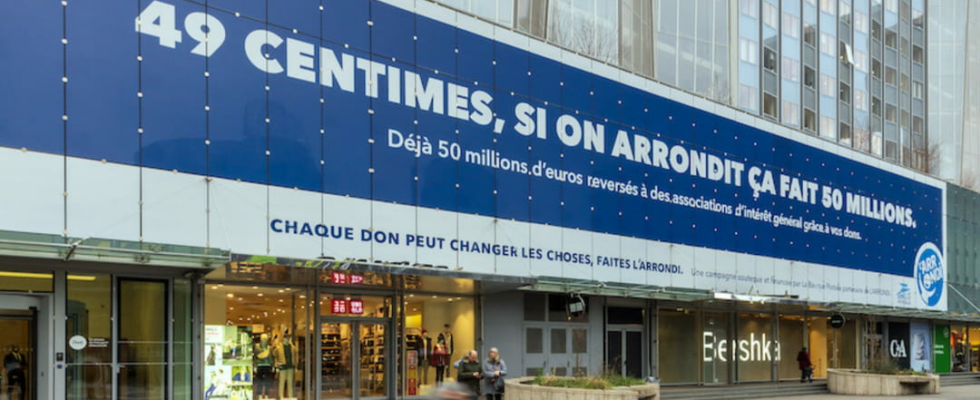“Do you want to round up to the next euro to help a charity?” This question is regularly asked at the checkout, but is the donation really safe?
Donations that are counted in cents, but that end up representing thousands, even millions of euros. This is the idea behind the device called “L’arrondi” that consumers often find in their stores. It is this famous message that appears on the payment terminal when paying the bill and which offers the customer to round the amount to the next euro to make a donation to an association: a purchase of 19.50 euros is thus rounded to 20 euros and allows 50 cents to be donated to an organization.
If donations often amount to around ten cents and never exceed, by definition, 99 cents, as explained by Olivier Cueille, one of the co-founders of MicroDON, the company behind the system, Parisianthe sums collected are significant. More than 67 million euros have been collected since 2010 via The device The rounding according to the company. But is this money actually paid to the associations that benefit from the donations, or does it end up in the pockets of the companies?
Not a single cent goes to the businesses that use L’arrondi, MicroDON director Mathieu Jubré is categorical. “The brand has a dedicated bank account, the association too, and we receive all the information for each money transfer, so we have a view from A to Z on the movement of funds,” he explained to RMC Conso. But the company that offers the donation system actually takes a 10% commission on donations. A commission that finances the installation of the technical devices: “No part of the donation covers the collection costs”, assures MicroDON. “The donation made through our tools is fully paid to the beneficiary association”. According to the entrepreneur, the company makes money on the installation of collection systems in the various stores.
So the donations do reach the recipients. But are they carefully selected? The director assures that all measures are taken to avoid scams. “The accounts are scrutinized, numerous documents are requested, the identity of the people at the head of the associations is verified, their financial health, that there are no conflicts of interest, controversies concerning them, banking exclusions… Everything is put through the mill,” he explains. Mathieu Jubré. The Restos du cœur, Secours Populaire, the Food Bank, Emmaüs and Petits Princes are among the beneficiary associations.
Rounding, which has existed since 2010 but became more widespread in 2019, seems to convince the majority of consumers. 66% of customers of brands dealing with MicroDON have already had a donation proposal and 44% have agreed to do Rounding according to a OpinionWay survey conducted for the company in November 2023. Among these customers who have donated, 97% say they are ready to do so again, whether occasionally (66%) or systematically (31%). However, 67% of French people would like to have more information “on how donations are used”.
